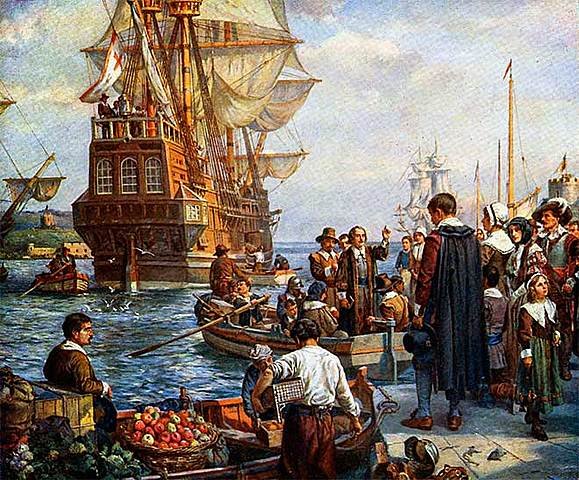Historical Context and Biography of John Stuart Mill
John Stuart Mill, one of the prominent economists of the 19th century, was born on May 20, 1806, in London. His father, James Mill—a Scottish philosopher and economist—exerted a profound influence on his upbringing. From a very young age, Mill received a rigorous education under his father’s guidance, who was determined to mold him into an exceptional thinker. Before reaching adolescence, the young Mill studied a wide range of subjects, including Greek, Latin, logic, and economics.
Mill grew up in an intellectual environment deeply influenced by utilitarianism, a philosophical current promoted by Jeremy Bentham, a close friend of James Mill. Bentham, like his friend, advocated for the principle of the greatest happiness for the greatest number—a concept that John Stuart Mill would later adopt and refine throughout his life. His best-known work, Principles of Political Economy (1848), blends utilitarian elements with economic analysis, becoming a fundamental text for understanding the economy and international trade of his era.
Not only did Mill distinguish himself as an economist, but also as a philosopher and social thinker. His interdisciplinary approach enabled him to tackle economic problems with an ethical and humanistic perspective, setting him apart from other economists of his time. Principles of Political Economy not only analyzes economic concepts such as production, distribution, and consumption, but also explores social and political implications, emphasizing the importance of social reforms for a more equitable society.
Mill’s legacy in economics is undeniable. His ability to integrate philosophical principles with economic analysis has established him as a central figure in the history of economic thought. His ideas continue to be relevant in contemporary debates on economics and international trade.

Contributions to Economics
John Stuart Mill made significant contributions to economics, particularly in value theory and the distribution of wealth. One of the most notable aspects of his work is his detailed and nuanced analysis of value. Mill distinguished between:
- Use Value: The utility that a good provides.
- Exchange Value: The ability of a good to be traded for other goods in the market.
This distinction is fundamental to understanding how goods and services are valued in an economy.
Mill also introduced important ideas regarding the laws of supply and demand, which are essential pillars of economic theory. While building on the work of earlier classical economists like Adam Smith and David Ricardo, Mill added his own interpretations and refinements. He emphasized the significance of psychological and social factors in determining demand—a depth of analysis that was less pronounced in earlier works—thus offering a more complete and dynamic view of the market.
Regarding the factors of production, Mill stressed the importance of capital, labor, and land, placing particular emphasis on capital. He argued that capital is not only a production factor but also an accumulator of wealth that influences economic distribution. Furthermore, he introduced the concept of marginal utility—the additional utility gained from consuming one more unit of a good or service—which became a cornerstone of neoclassical economics and remains highly relevant today.
Mill’s contributions enriched the theoretical framework of economics and provided practical tools for understanding international trade and market dynamics.
Influence on International Trade
John Stuart Mill played a crucial role in refining the theory of comparative advantage, originally proposed by David Ricardo. The theory of comparative advantage holds that nations should specialize in producing goods and services they can produce more efficiently, thereby maximizing overall economic welfare through trade. Mill not only embraced this theory but also refined it, laying a more robust theoretical foundation for free trade.
A firm advocate of free trade, Mill argued that eliminating tariffs and other trade barriers would lead to greater economic efficiency, lower consumer prices, and a more equitable distribution of resources. According to Mill, international trade promotes not only economic prosperity but also peace and cooperation among nations by aligning their economic interests.
However, Mill also recognized that free trade is not a panacea. He believed that state intervention might be necessary in certain cases to correct market failures—for example, to protect emerging industries that are not yet competitive on the international stage. He suggested that free trade policies should be implemented gradually, allowing local economies to adjust over time. en el comercio internacional

Relevance and Legacy in Modern Economics
John Stuart Mill’s contributions to economics and international trade continue to be profoundly relevant today. His theories on private property and free markets have shaped the foundation of contemporary economic policies. Locke argued that private property is a natural right derived from individual labor—a concept that remains a cornerstone of modern capitalist economies.
In economic regulation, Mill’s ideas have influenced both advocates of free markets and proponents of moderate state intervention. His emphasis on the individual’s right to own and trade property has been instrumental in the development of intellectual property laws, which are essential for technological innovation and economic growth in the digital era.
Mill’s thinking also significantly impacts debates on market regulation. His principles are invoked to argue against excessive government intervention while also justifying certain regulations aimed at balancing private interests with public welfare. For instance, his theories support competition policies designed to prevent monopolies and foster more equitable and efficient markets.
In international trade, Mill’s ideas on free exchange have influenced treaties and trade agreements. His vision of an economic system based on free competition and the removal of trade barriers resonates with organizations like the World Trade Organization (WTO), which champions global trade liberalization.
Contributions to Feminism and Women’s Rights
In addition to his economic and philosophical work, John Stuart Mill was a fervent advocate for gender equality—an exceptionally progressive stance for his time. His work The Subjection of Women (1869), co-authored with his wife, Harriet Taylor Mill, is one of the foundational texts of classical feminism.
- Advocacy for Equal Rights:
In The Subjection of Women, Mill argued that the legal and social subjugation of women was one of the gravest injustices of his time. He maintained that women should have the same legal and political rights as men, including the right to vote, education, and access to all professions. Mill saw these restrictions as a form of slavery that not only limited women’s potential but also harmed society by wasting half of the human talent. - Critique of Patriarchy:
Mill systematically critiqued patriarchy, arguing that male domination was maintained not by any natural inferiority of women but by oppressive customs and laws. He asserted that the true nature of both men and women could only be discovered in a state of equality, free from coercion and discrimination. This revolutionary argument subverted traditional gender roles and laid the groundwork for future feminist theory.
Mill’s ideas on gender equality have profoundly influenced feminist thought and the women’s rights movement, continuing to inspire modern debates on gender equity and human rights.
Principles of Political Economy
John Stuart Mill’s monumental work, Principles of Political Economy (first published in 1848), remains a cornerstone of classical economic thought and a vital reference for economic analysis today. In this work, Mill addresses a broad range of topics, including value theory and the distribution of wealth.
International Trade:
Mill’s theories on comparative advantage and free trade are fundamental to understanding how nations can mutually benefit from trade. These ideas continue to influence international trade policies and global economic theory.
Theory of Value:
Mill argued that a good’s value depends not only on its production costs but also on supply and demand. This integrated perspective, drawing from both classical and neoclassical economics, provides a comprehensive understanding of how market prices are determined.
Wealth Distribution:
Mill maintained that while wealth creation is governed by natural laws, its distribution is shaped by social and political institutions. This distinction underscores the importance of policy decisions in shaping an economy—a concept that remains central in current economic debates.
On Liberty
In his influential work On Liberty (1859), John Stuart Mill explores the nature of individual freedom and the limits of state authority. Mill argues that the only justifiable reason to exercise power over an individual, against their will, is to prevent harm to others—a principle known as the harm principle. He asserts that individuals should be free to act as they choose, as long as their actions do not harm others.
Mill also champions freedom of expression, insisting that all ideas—even the most unpopular—should be heard and debated. He contends that free expression is essential for personal development and societal progress. Additionally, Mill addresses the “tyranny of the majority,” warning that the preferences of the majority should not oppress minority rights. For Mill, protecting individual rights is crucial to avoid such tyranny, and he advocates for a diverse society that fosters innovation and human development.
On Liberty not only reflects on freedom and authority but also offers an optimistic vision of individual and social progress—a vision that has profoundly influenced modern political philosophy, economics, and human rights debates.
Contemporary Debates
John Stuart Mill’s theories remain highly relevant in contemporary discussions on globalization, economic liberalism, and social justice.
Social Justice:
Mill’s utilitarian principles, emphasizing the maximization of overall well-being, are foundational in current debates on income redistribution, social security, and equitable resource access. His ideas offer a framework to address economic and social inequalities and promote a more just society.
Globalization:
Mill’s principles of free trade and international cooperation resonate strongly in today’s interconnected world. He argued that international trade benefits individual economies and fosters global peace and cooperation. These ideas are reflected in the economic interdependence and multilateral trade agreements of the modern era.
Economic Liberalism:
Mill’s advocacy for individual freedom and minimal state intervention has shaped modern neoliberal policies that champion free and competitive markets. However, his nuanced approach—recognizing the need for limited state intervention to correct market failures—continues to be debated amid rising economic inequalities and financial crises.

Legacy and Continuity of His Thought
John Stuart Mill’s interdisciplinary approach and his ability to integrate philosophy with economics and ethics have ensured that his ideas remain applicable in today’s world.
- Influence on Welfare Economics:
Mill was a pioneer in incorporating ethical considerations into economic analysis, a practice that has become a cornerstone of welfare economics. His ideas on wealth distribution and state intervention to correct inequalities are fundamental to modern welfare policies and income redistribution strategies. - Liberalism and Social Policy:
As a central figure in liberal thought, Mill’s principles of individual freedom and autonomy have influenced modern debates on personal liberty and state regulation. His balanced view on state intervention—to correct market failures while safeguarding individual rights—offers a more nuanced approach than pure classical liberalism. - Human Rights and Social Justice:
Mill’s commitment to social justice and individual rights has resonated globally in human rights and social justice movements. His writings on freedom of expression, gender equality, and the protection of minority rights remain central to contemporary legal and political debates.
In summary, John Stuart Mill’s contributions to economics, international trade, and social philosophy continue to serve as a valuable source of insight and guidance in today’s globalized world. His legacy endures in the principles that underpin modern economic policies, free markets, and the ongoing struggle for social justice and human rights.
References and Recommended Reading
Original works of John Stuart Mill
- «Principles of Political Economy» (1848)
- This is one of Mill’s most important works, in which he discusses topics such as value, distribution, production, and international trade. It is fundamental to understanding his contributions to classical economics.
- This is one of Mill’s most important works, in which he discusses topics such as value, distribution, production, and international trade. It is fundamental to understanding his contributions to classical economics.
- «On Liberty» (1859)
- Although it focuses more on political and social philosophy, this book is crucial to understanding Mill’s ideas on individual freedom and their impact on economic theory and ethics.
- Although it focuses more on political and social philosophy, this book is crucial to understanding Mill’s ideas on individual freedom and their impact on economic theory and ethics.
- «Essays on Some Unsettled Questions of Political Economy» (1844)
- A collection of essays in which Mill explores economic concepts such as the theory of value, comparative advantage, and political economy.
- A collection of essays in which Mill explores economic concepts such as the theory of value, comparative advantage, and political economy.
Modern Studies and Analysis
- «The Life of John Stuart Mill» by Michael St. John Packe
- A comprehensive biography that offers a detailed overview of Mill’s life, his works, and his intellectual influence.
- A comprehensive biography that offers a detailed overview of Mill’s life, his works, and his intellectual influence.
- «John Stuart Mill and the Art of Compromise» by David Bromwich
- This book analyzes how Mill balanced his ideas about individual liberty with his support for certain state interventions in the economy.
- This book analyzes how Mill balanced his ideas about individual liberty with his support for certain state interventions in the economy.
- «Mill and Paternalism»
- A study of how Mill’s ideas on issues of paternalism, especially in the economic context, have influenced modern liberal thought.
- A study of how Mill’s ideas on issues of paternalism, especially in the economic context, have influenced modern liberal thought.
- «John Stuart Mill and the Classical School»
- It explores Mill’s relationship with the classical school of economics, and how his ideas advanced and, in some cases, diverged from those of his predecessors.
- It explores Mill’s relationship with the classical school of economics, and how his ideas advanced and, in some cases, diverged from those of his predecessors.
- «The Economics of John Stuart Mill»
- A collection of essays that examine in detail Mill’s economic theories, their development, and their relevance to modern economics.
- A collection of essays that examine in detail Mill’s economic theories, their development, and their relevance to modern economics.


